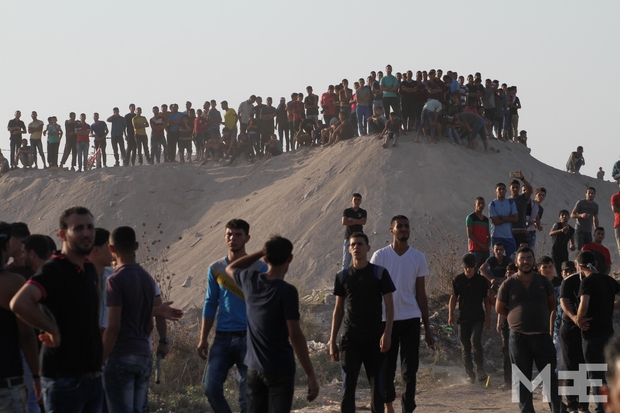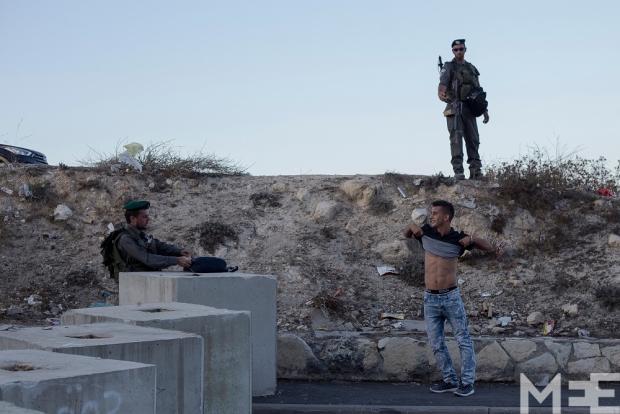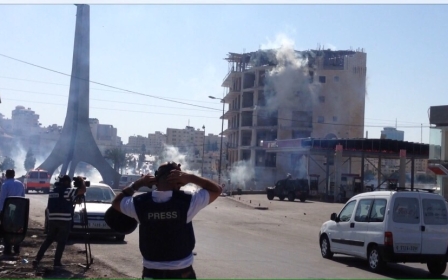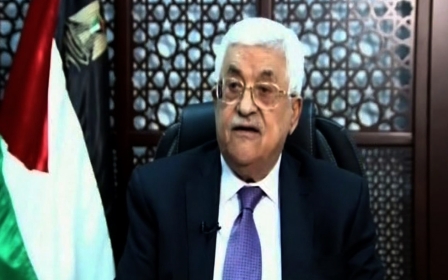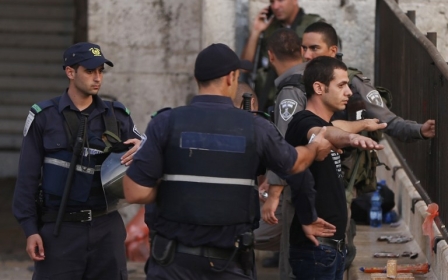3 Palestinians dead in Gaza as protests sweep West Bank
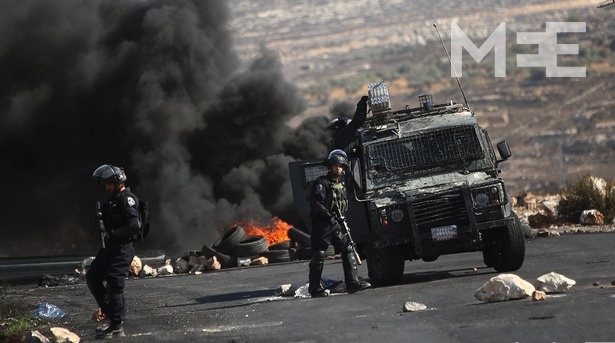
Protests rocked the West Bank and Gaza on Friday after various political factions called for a “day of rage”. Protestors threw rocks and tried to break through Israeli barricades, with Israeli forces firing tear gas and live and rubber bullets.
Two protestors were killed by Israeli fire in Gaza, medical sources telling Middle East Eye. Additionally, a third Palestinian who was injured in protests at the Gaza border last week died of his wounds, according to local news reports. The casualties bring the death toll in Gaza this month to 12, with more than 210 injured on Friday alone, including 88 people who were hit with live ammunition.
The two shot dead on Friday were identified by the Palestinian news agency Maan as Yahiya Abd al-Qader Farhat, 24, and Mahmoud Hatim Hmeid, 22. The Palestinian who died of his wounds was named as Shawiq Jamal Jabr, 37.
Clashes also took place in Nablus, where Israeli forces shot another Palestinian protester dead. Protests also broke out in Bethlehem and Ramallah, as well as in other West Bank towns. Dozens of injuries were reported. Since the start of the month 37 Palestinians, including many protesters and a number of attackers have been killed. Seven Jewish Israelis have been killed in attacks by Palestinians.
Gaza clashes
MEE contributor Ala Qandil in Gaza said that it was too dangerous to reach the Erez border crossing where two protestors were shot dead and many more injured by Israeli police after the Hamas and Islamic Jihad movements called for a “day of rage”.
However, protests also broke out near Nahal Oz, a military outpost on the Israeli side of the border less than 10 kilometres south and also in Khan Younis some 10 kilometres from the Egyptian border. Thousands came out, many threw stones and some tried to breach the Israeli border fence.
“We cannot remain silent when our people are being killed in the West Bank and Jerusalem,” said Mahmoud Masoud, a 22-year-old from Jabalia refugee camp who came to protest near Nahal Oz.
“This time it's not about Gaza, it's an act of solidarity,” he said, adding that being injured or shot is absolutely a worthy sacrifice.
Nablus attack and protests
Overnight on Friday, there was an arson attack on a site in Nablus in the northern West Bank. Israeli media said Palestinian youths set fire to Joseph’s Tomb, a holy site revered by Jews and Christians that is also believed to be the burial place of an Islamic cleric, Sheikh Yussef Dawiqat.
The Palestinian Ministry of Information contested this, saying that the activists only burned rooms at the complex that had been built by the Israeli army for Jews who wanted to come pray at the site, not the tomb.
A group of Palestinian journalists also released a statement claiming that an unnamed student, who they said had attended school at the site, was involved in the burning of the Dawabsha family home in the village of Duma near Nablus on 31 July. These claims could not be verified.
The incident sparked protest, with at least one Palestinian being shot dead - identified by local media as 19-year-old Ihab Jihad Hanani - and 16 more injured in the ensuring clashes.
Similar protests also took place in Ramallah, especially near the flashpoint settlement of Beit El, in addition to Bethlehem, which has witnessed some of the fiercest protests to date.
A young protestor in Ramallah told MEE: "There is no other option but this - we have no freedom. We have no peace - we are confined to this situation. Palestine will be free by us and with our street resistance."
Earlier in the day, a 26-year-old Palestinian was reported to have stabbed an Israeli soldier and was shot dead at the scene. He posed as a member of the press in order to get close to soldiers before stabbing one of them, according to Israeli media. The soldier was moderately wounded.
East Jerusalem
However, the violence did not reach East Jerusalem, which remained relatively calm, despite tensions in the city being at fever pitch in recent weeks.
In the early hours police erected fresh barricades and checkpoints in Palestinian-majority neighbourhoods and set up concrete barriers on many roads. Some of these were later taken down when clashes failed to materialise but a source on the ground said that few dared to leave their homes with “more police and army on the streets of Old City and East Jerusalem than people”.
Photojournalist and MEE contributor Faiz Abu Rmeleh, who is based in East Jerusalem, said that: "Citizens are complaining about the collective punishment policy [of the closures and restrictions].”
“[They are complaining] not only because of the closure, but because they have led to [intense] traffic within neighbourhoods, especially in the mornings and the afternoons, the time when students, workers and employees go back home."
Young men were being widely stopped and frisked in the city, with police requiring many to partially undress, Abu Rmeleh said. Women and children are also being thoroughly searched, with many complaining they are unable to go to work, school or university due to the clampdown. Many say they are terrified of reprisal attacks, and fear the repercussion of government calls to ease weapons restrictions and allow more settlers to carry firearms.
Israeli authorities on Wednesday began locking down parts of the city in response to the growth in lone-wolf attacks.
Appeal to the UN
Palestine’s Ambassador to the UN, Riyad Mansour, on Friday called on the international community to step in to protect Palestinian civilians in the occupied territories.
"The escalations mean that the conflict will become a religious one. We need to make Israel responsible for its illegal violations of international law and human rights law," Mansour told a special session of the UN Security Council in New York.
He went on to call for an end to "collective punishment" such as the closures around East Jerusalem and home demolitions, which are being carried out against Palestinians accused of carrying out attacks.
Mansour then urged the Security Council to honour former resolutions, which called for international protection for Palestinian citizens living under occupation, the disarmament of settlers and the deployment of international observers. The measures were approved in 1994 after the mass shooting at the Ibrahimi mosque in Hebron in which 29 Palestinians were killed by a Jewish settler.
Israel’s ambassador to the UN David Roet lashed out at Mansour, saying that the Israelis “fear for the lives of their children every time they walk out of their door”.
"This tide of terror has washed over the entire nation and spares no-one,” he said, while stressing that he was dismayed that there were no international calls “for the Palestinian leadership to stop their incitement”.
Both US Secretary of State John Kerry and President Barack Obama have made such calls in recent days.
Roet accused Palestinian President Mahmoud Abbas of spreading "lies" about the Al-Aqsa mosque, known to Jews as the Temple Mount.
Heavy restrictions on prayer have been enforced on the site, with men under the age of 40 not allowed to pray there and other restrictions also periodically taking place.
Tensions over the site are partially behind the latest flare-up in violence, with Muslims insisting that right-wing Israelis are trying to alter the status quo at the site and eventually divide worshiping rights, similar to the system now in place in Hebron, where Muslims and Jews are allotted different prayer days and hours.
Also speaking at the special UN session, Samantha Power, the US's UN ambassador, urged for calm and said that her country was committed to retaining the status quo at Al-Aqsa.
US President Barack Obama was planning to visit the region at the "appropriate" moment, she added.
- Additional reporting by Ala Qandil in Gaza, Elia Ghorbiah in Ramallah and Shira Rubin in Nablus
Stay informed with MEE's newsletters
Sign up to get the latest alerts, insights and analysis, starting with Turkey Unpacked
Middle East Eye delivers independent and unrivalled coverage and analysis of the Middle East, North Africa and beyond. To learn more about republishing this content and the associated fees, please fill out this form. More about MEE can be found here.


